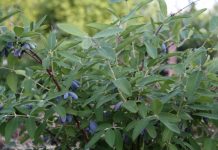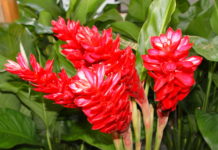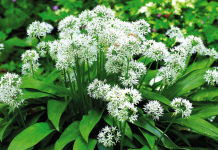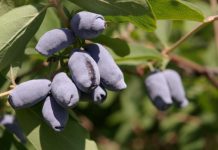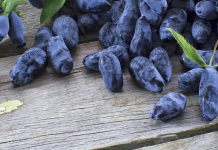A nutritious and very cheap fertilizer is an onion peel for the garden and the garden, the use of which regularly allows you to grow a rich harvest of berries, vegetables, as well as fruits and even protect the site from all kinds of pests.
Material Content:
Useful properties of onion peelings for a kitchen garden
This raw material for the preparation of nutritional compositions contains a record amount of minerals and an extensive range of vitamins. Nutrient formulations based on onion peel strengthen plants, protect against the appearance of insects and also various diseases.
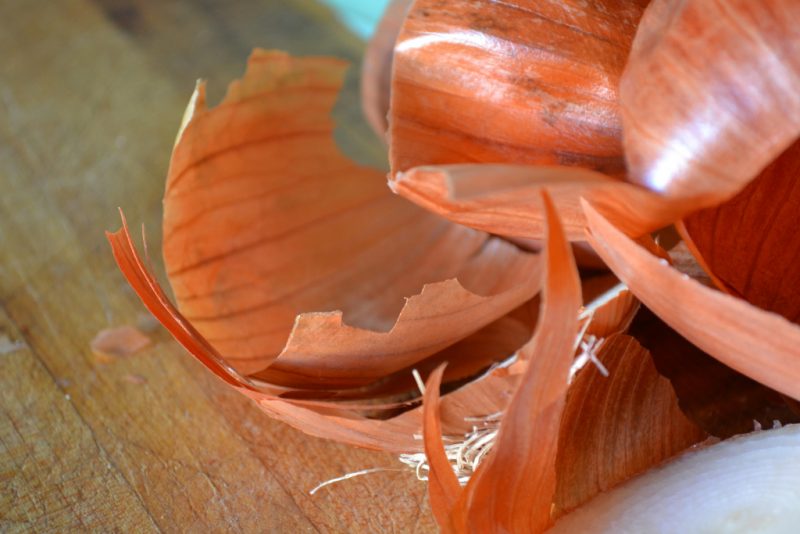
There are a lot of:
- Carotene, the most powerful antioxidant in the garden.
- Phytoncides protecting plants from bacteria and insects.
- Vitamins B, especially needed seedlings.
- Vitamins PP, improving root formation.
These are the main trace elements that are contained in compositions based on onion peeling a lot. But there are many other useful substances in the composition that help vegetables, berries and trees to be strong and bear fruit well.
What diseases are effective against onions?
The use of onion husks contributes to the reliable protection of the site from many diseases that sometimes destroy the plant. When growing seedlings, young plants are often affected by the black leg. Horticultural stores offer a huge selection of poisonous, very dangerous chemicals for controlling the stem, but many gardeners prefer natural remedies. To prevent the appearance of the legs is very simple - before sowing seeds in the soil, close up the crushed cleanup.
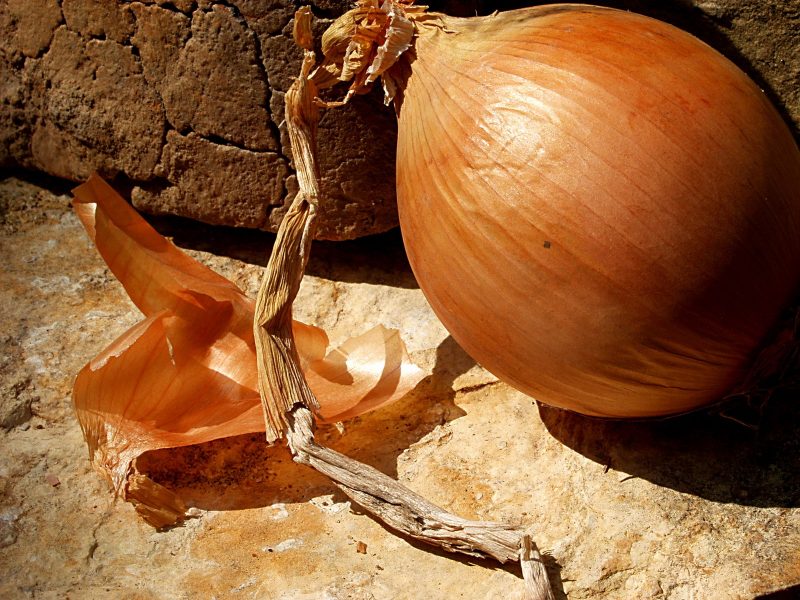
A very dangerous disease of cucumbers is false dew. The disease can manifest itself at any stage of plant development. In preventive measures, you need to spray the planting with a decoction of the husk after 5 days.
Against a disease such as bacteriosis, it is recommended to spray radish with infusion. Sprayed very abundantly, with a real shower.
Tomato plantings are threatened by cancer, which can be prevented by spraying and pouring bushes with infusion of cleanings. It also serves as an excellent fertilizer for tomatoes.
Pest control
The use of onion peelings in the fight against insects attacking the garden is very effective. There are no nitrates in the composition of the raw material, which makes it absolutely safe.
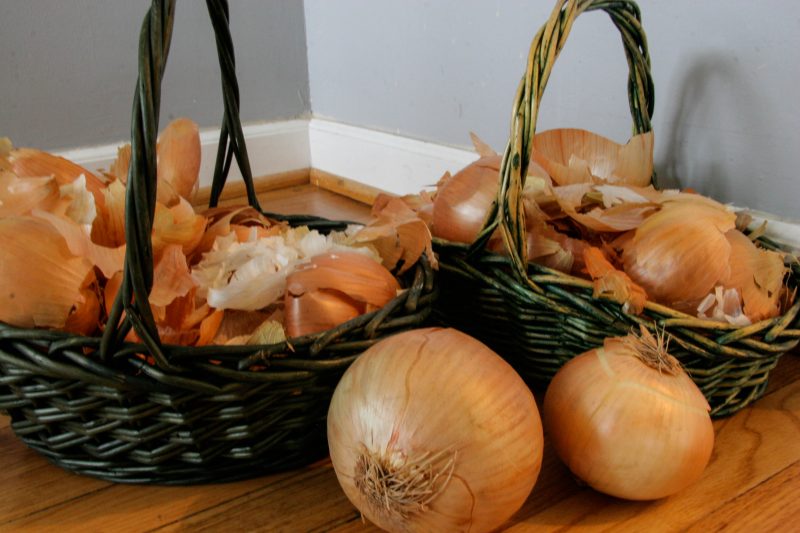
Cleaning can be used against aphids, spider mites, moths, earwigs and other pests. Decoctions do not have any negative effect on the ripening of the fruits.
Trees, berries, vegetables are sprayed with a concentrated composition prepared from 10 l of cleanings, 3 pieces of household 72% soap and 2 buckets of water. The purifications are poured with boiling water, insisted for several hours, and then filtered and added to the prepared soap chips. Spraying is carried out all season. The remnants of the product can be drained under the root to get rid of insects living in the soil.
The infusion of onion husks against the mite is used as follows: 1 kg of raw material is poured into 2 liters of lukewarm water and infused for 2 days. Strained infusions are generously sprayed with plants, adding a little any liquid soap to it.
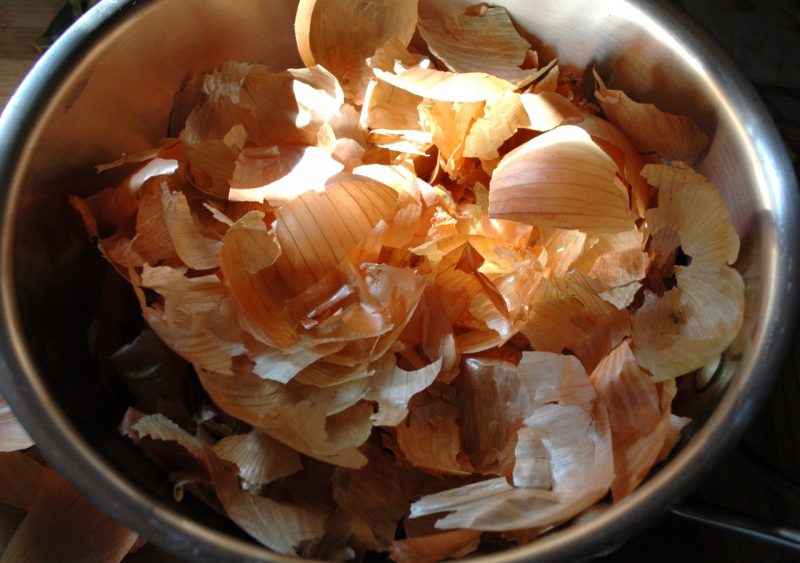
Use the product and to combat colorado and against aphids in the form of a decoction. You need 3 full handfuls of husk, pour 3 liters of water and boil for 5 minutes. After 4 hours, the broth of onion peelings can be taken for processing, breeding 1 liter in a bucket of water.
Using Onion Husk
Purifications are used not only against various diseases and many insects, but also as a nutritious fertilizer.
Application of infusion
An infusion of 400 g of onion husks and 2 l of boiling water is prepared for cucumbers. Fertilizer should be infused for 2 days. Before use, the infusion is diluted in half with water.
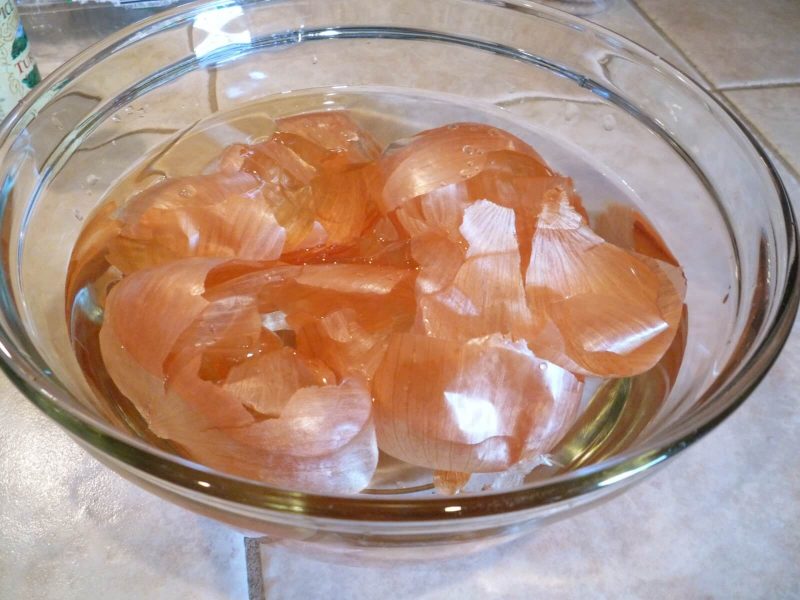
For tomatoes, you can use the same recipe for infusion, and pour 500 ml of each bush into it. After a short time, the first results will be noticeable - the bushes will become stronger, begin to grow actively, the leaves will become more fleshy.
You can not prepare an infusion in reserve - it should be used as quickly as possible, otherwise it will lose all its useful properties.
How to use a decoction
A decoction of onion husks is a more concentrated fertilizer that must be used correctly.
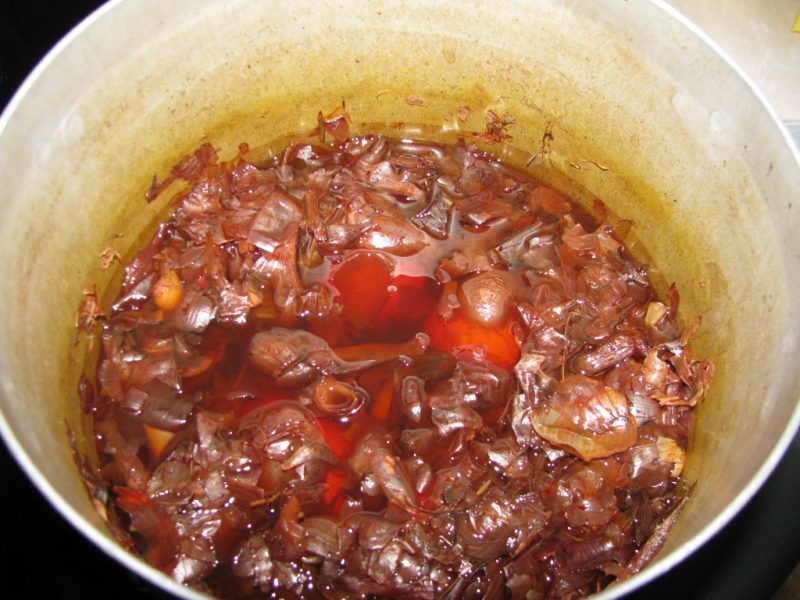
To prepare 5-6 full handfuls of husk, pour 3 liters of lukewarm water and boil for 5 minutes. The broth should be infused under the lid for several hours. You get a concentrate that needs to be filtered.
The resulting broth is diluted 1: 5 with water and added to it, or the cultures are sprayed.
Onion peel in kind
The useful properties of onion husks for the garden, berry plants and vegetable garden are very wide, and the product can even be used in its raw form. Husk must be applied immediately to the soil as fertilizer.
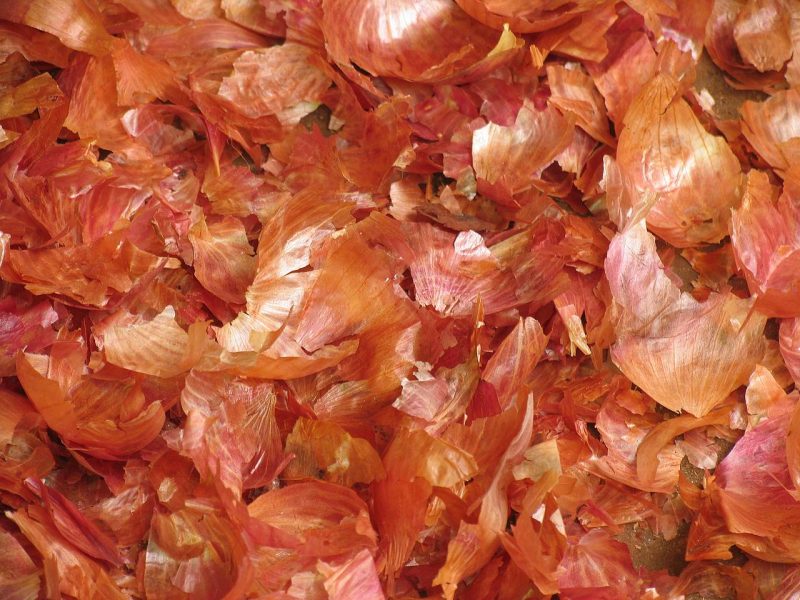
When preparing the soil mixture for sowing vegetable seedlings, it is useful to add a couple of handfuls of raw materials to it to enrich the soil.
When planting cucumbers or tomatoes, a little husk is added to each hole, which provides nutrition to the root system.
When digging a site in spring or autumn, onion peeling is also introduced.
Advantages and disadvantages of fertilizer
Top dressing with onion crops on the site has only one drawback - it is necessary to collect raw materials throughout the winter.
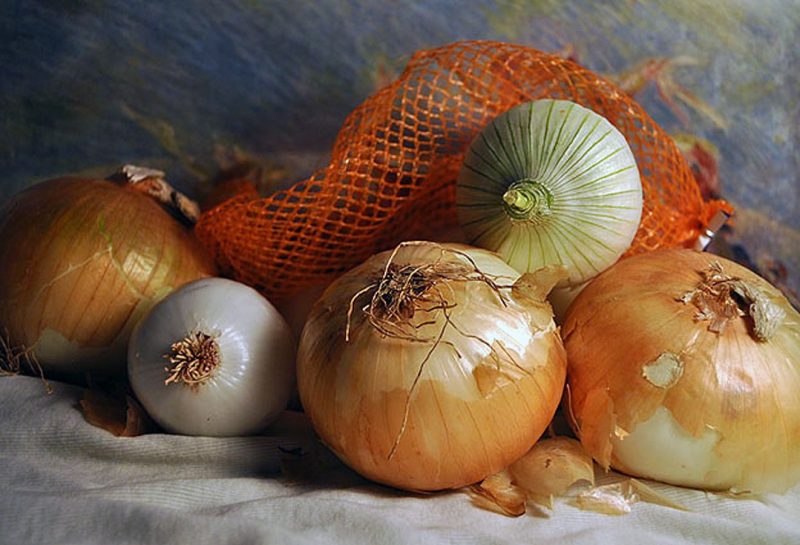
The rest of this fertilizer has only advantages, namely:
- Pest control without the use of potent poisons hazardous to health.
- Treatment of diseases without the use of chemicals.
- Prevention of the appearance of diseases of vegetables, berries and fruits without the use of substances hazardous to health.
- Cleanings are used for compost.
- Vegetables and fruits fed with onion peels have a higher keeping quality and are well stored in the winter.
- A plant fed with cleanings can tolerate differences in air temperature.
- Onion peeling contains a huge amount of minerals and vitamins.
- You do not have to pay for fertilizer, because it remains after processing onions in the kitchen for cooking.
Try not to throw away cleanings, but collect them to use for feeding and treating plants in the garden. You will notice at the end of the season that the crop has become higher.


